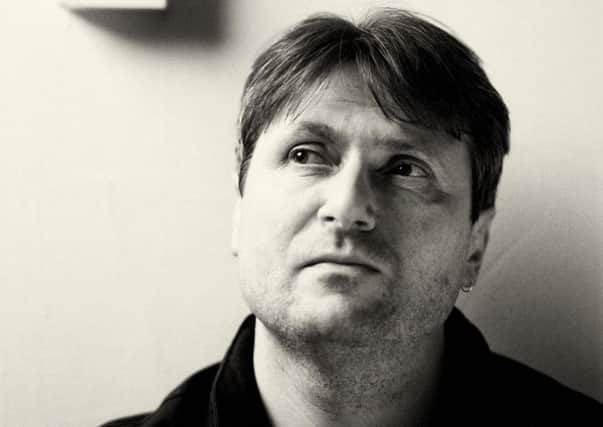Poetry review: StAnza Poetry Festival 2015


This year’s Poetry Centre Stage events at the Byre Theatre showcased StAnza’s biggest names, some well established crowd-pullers, others visiting Scotland for the first time. American Carolyn Forché, is one of the latter. Her reading on Friday, was something of a revelation, a mesmerising, elegiac voice which transported us to Russia, Krakow, Bratislava, and to El Salvador, where she went in the 1970s as a volunteer to help recover the bodies of the Disappeared.
She read with Irishman Paul Durcan, another melifluous voice, whose poems are conversational, anecdotal, so apparently artless that they belie their own profundity.
Advertisement
Hide AdSaturday night’s two readers, Kei Miller and Simon Armitage, touched on elegy too, though the mood was more upbeat. Armitage mixed poignancy with perfectly judged comic timing, balancing crowd-pleasers from his Collected Poems with recent unpublished work, though he did have to stop and laugh at one unexpected innuendo which the audience spotted before he did.
Miller addressed this year’s Archipelago theme by offering a tour of his island, Jamaica, a journey away from the highways and the tourist resorts into the heart and soul of the place. Maps and place names play an important role in his Forward Prize-winning 2014 book The Cartographer Tries to Map A Way to Zion, and his reading unfolded like a personal map of Jamaica and its diaspora.
At the heart of Miller’s work is a concern with languages, and the unique way in which each language describes a way of seeing the world. One could take that a step further and say that each poet has their own distinct language: the sensual Amercian-accented poems of J L Williams (standing in for Liz Berry, a last minute cancellation); the clever, idiosyncratic Ian Duhig; the measured and witty voice of Helen Mort, whose forthcoming collection is inspired by women mountaineers.
But, perhaps the most distinctive voice of StAnza 2015 was that of Ilya Kaminsky, born and raised in Odessa, coming to live in the USA as a teenager where his family were granted asylum. Kaminsky’s much-lauded first book, Dancing in Odessa, has recently been published in the UK. He read a sequence of poems, ‘Musica Humana’, an elegy for the Russian poet Osip Mandelstam who died under Stalin, offering us photocopies of the text to help with his “heavy Russian accent”, and charming our ears with his incantatory reading style.
StAnza offers not only a chance to hear world-class poets read from their own work, but also an invitation to celebrate poets from the past. An “in conversation” event gave Games of Thrones actor Clive Russell a chance to read – with an actor’s finesse – his favourite poems, from Norman MacCaig to Herman Melville.
Meanwhile, Past & Present events invited poets to speak about and read from a poetic voice. These events can be a revelation, such as when David McOmish, a classicist from Glasgow University, spoke about the Scots poets writing in Latin during the Jacobean period, a century of Scots intellectual culture which is only now being recovered. And Kaminsky spoke illuminatingly about Paul Celan, the Romanian Jewish poet who became one of the major voices in German poetry after the Holocaust.
Advertisement
Hide AdOthers treated the event as a kind of elegy. With an appropriately light touch, Tom Pow spoke of Alastair Reid, a guest at previous StAnzas, who died last September aged 88. A poet, traveller, translator of Borges and Neruda, Reid approached life as an adventure and entered ageing with the same curiosity, always, Pow said, “the youngest person in the room”.
Carolyn Forché described how she, as a young writer, wrote a letter to the exiled Nobel Laureate Joseph Brodsky, who replied, advising her to read the work of Mark Strand. Strand went on to become a friend and colleague, and she spoke movingly not only of his poems but of the way in which he spoke and wrote about poetry.
Advertisement
Hide AdStrand put his finger on what elegy does, saying the major subject of poetry is loss, but that it addresses the subject in a way which is not painful. One of the magical qualities of poetry is that it reconciles us to what seems unbearable, and draws beauty from it. StAnza 2015 more than bear this out.
Susan Mansfield